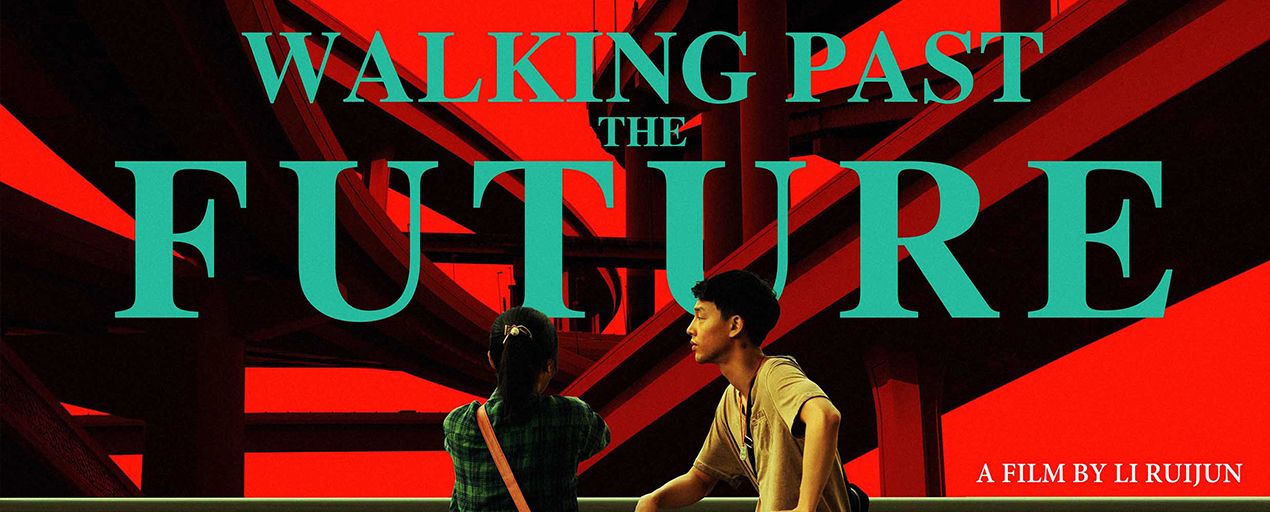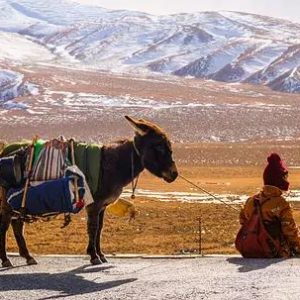Written by Caitlin Young & Edited by Dave Ong, Ervin Llobrera, Mark Yu
As the only Chinese title to be nominated in this year’s Cannes Film Festival, director Li Ruijun’s latest movie, Walking Past The Future, has a lot of expectations to live up to. Known for his films on China’s rural poor, Li’s latest work is no exception—albeit with a science fiction/thriller twist this time around. It may also be important to note that the film’s all-star cast and relatable storyline on social topics make Walking Past the Future Li’s most commercially viable movie yet. But the real question is: Is it worth the hype?
Walking Past the Future centers on Yang Yaoting (Yang Zishan), a young woman desperate to save her family. The Yangs moved from northwestern Gansu—one of China’s poorest provinces—to southern Shenzhen twenty years ago in search of a better life. This has resulted in decades of hard labor as factory and construction workers for the Yangs and other impoverished families—until the fateful day both Yaoting’s parents are laid off. The family journeys back to their native Gansu in defeat, their dreams of a better life crushed—only to find that the government has released new laws on land redistribution. Now reduced to working for others on their own soil, the Yangs seemingly have no way out—well, not unless Yaoting decides to do something about it.
This is where the science fiction/thriller twists comes in. In true heroine fashion, the once shy and soft-spoken Yaoting decides to stand up for herself, working twice as hard and lobbying thrice as much, as well as returning to Shenzhen in search of the better life her parents hoped for her all those years ago. In a fit of desperation, she decides to settle for easy money by agreeing to be one of many human lab rats, thus subjecting herself to a variety of top secret science experiments all for the sake of feeding her family.
As a filmmaker, Li Ruijun successfully weaves a story of hard work, filial piety, and sheer determination about China’s urban poor—a plot that’s sure to resonate greatly with the general public. However, his decision to cast the popular Yang Zishan in the starring role instead of giving lesser-known actresses a chance (something the director has been known to do in the past) seems a calculated move to appeal to the masses. While there’s no denying that Yang carries her role with charisma and grace as the persevering—though at times pitiful—protagonist, it’s difficult to separate her face from her public persona as a mainstream, veteran actress. The movie could have done better with a fresher face, but it’s a small price to pay for a guaranteed commercial success.
Undoubtedly, the plight of migrant workers is the focal point of the film. The vast injustice in society, not to mention the rampant abuse committed by those in power, is executed with such excruciating rawness that non-Chinese viewers may be led to think that the film is grossly exaggerated. But make no mistake: China, for all its economic prosperity, also has an overabundance of poor laborers, a fact that even its beautifully-shot cinematography cannot mask. Its approach at facing bleak reality is perhaps the film’s greatest strength.
In trying to be too much, however, Walking Past the Future falls flat. The realness of China’s central squalor may be evident to viewers, but its other aspects are not. The science fiction angle of the story makes for a symbolic representation of the materialistic and unfair society, but it never comes full circle. There are too many allusions, too many businesses, and too many things going on to emphasize the film’s deeper meaning. The characters are one-dimensional, seemingly unempathetic—they lack the driving force to transform the story. This isn’t the only film that has ever focused on China’s unfairly-treated farmers and factory workers, and it does not exactly succeed in doing something its predecessors have done before in a new or simply better way. In fact, one can even say that others have fared far better at doing so. The components of the movie, when put together, fail to enhance the main subject’s complexity, rendering the plot overtly simple and predictable, with only a few twists and turns to spice things up.
Overall, to answer this review’s first question—Is it worth the hype? The answer is no. That isn’t to say that Walking Past the Future is a bad movie. It’s well-written, well-acted, and well-directed—not to mention socially aware. It’s an excellent movie. But its downfall comes just from that—its acute awareness. Director Li Ruijun, overtly conscious of the pressure to make the movie a success, forgoes his original style in favor of a more mainstream one, something deliberately constructed to appeal the masses. The result is lackluster at best. It’s far too commercial and cookie cutter to leave any sort of impression or to create a lasting impact. So while it’s good enough to make the cut for Cannes, to receive much fanfare and critical acclaim, it must be said that Walking Past the Future caters too much to its cinema-savvy audience to deserve perfect marks.




